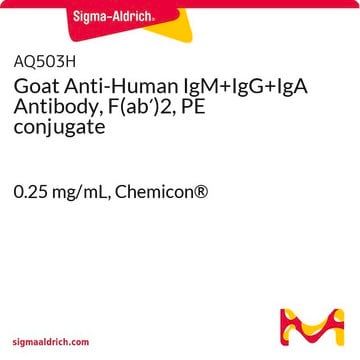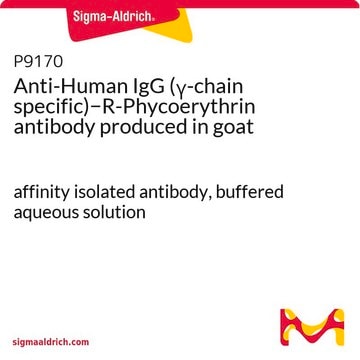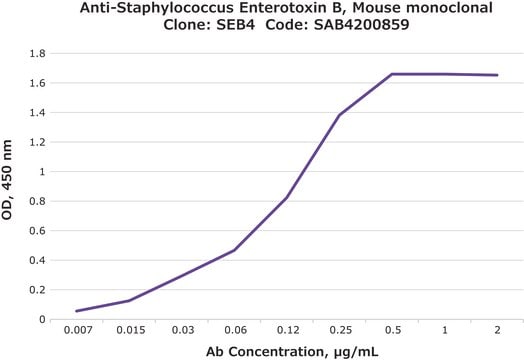SAB4200853
Anti-PBP2a of MRSA antibody, Mouse monoclonal
clone 38, purified from hybridoma cell culture
Synonyme(s) :
Anti-Beta-lactam-inducible penicillin-binding protein 2a
About This Item
Produits recommandés
Forme d'anticorps
purified from hybridoma cell culture
Niveau de qualité
Type de produit anticorps
primary antibodies
Clone
38, monoclonal
Forme
liquid
Concentration
~1 mg/mL
Technique(s)
immunoblotting: 0.5-1 μg/mL using whole recombinant PBP2a protein
Isotype
IgG1
Conditions d'expédition
dry ice
Température de stockage
−20°C
Modification post-traductionnelle de la cible
unmodified
Description générale
Spécificité
Application
Actions biochimiques/physiologiques
Forme physique
Stockage et stabilité
Clause de non-responsabilité
Vous ne trouvez pas le bon produit ?
Essayez notre Outil de sélection de produits.
Code de la classe de stockage
12 - Non Combustible Liquids
Classe de danger pour l'eau (WGK)
WGK 1
Point d'éclair (°F)
Not applicable
Point d'éclair (°C)
Not applicable
Certificats d'analyse (COA)
Recherchez un Certificats d'analyse (COA) en saisissant le numéro de lot du produit. Les numéros de lot figurent sur l'étiquette du produit après les mots "Lot" ou "Batch".
Déjà en possession de ce produit ?
Retrouvez la documentation relative aux produits que vous avez récemment achetés dans la Bibliothèque de documents.
Notre équipe de scientifiques dispose d'une expérience dans tous les secteurs de la recherche, notamment en sciences de la vie, science des matériaux, synthèse chimique, chromatographie, analyse et dans de nombreux autres domaines..
Contacter notre Service technique








